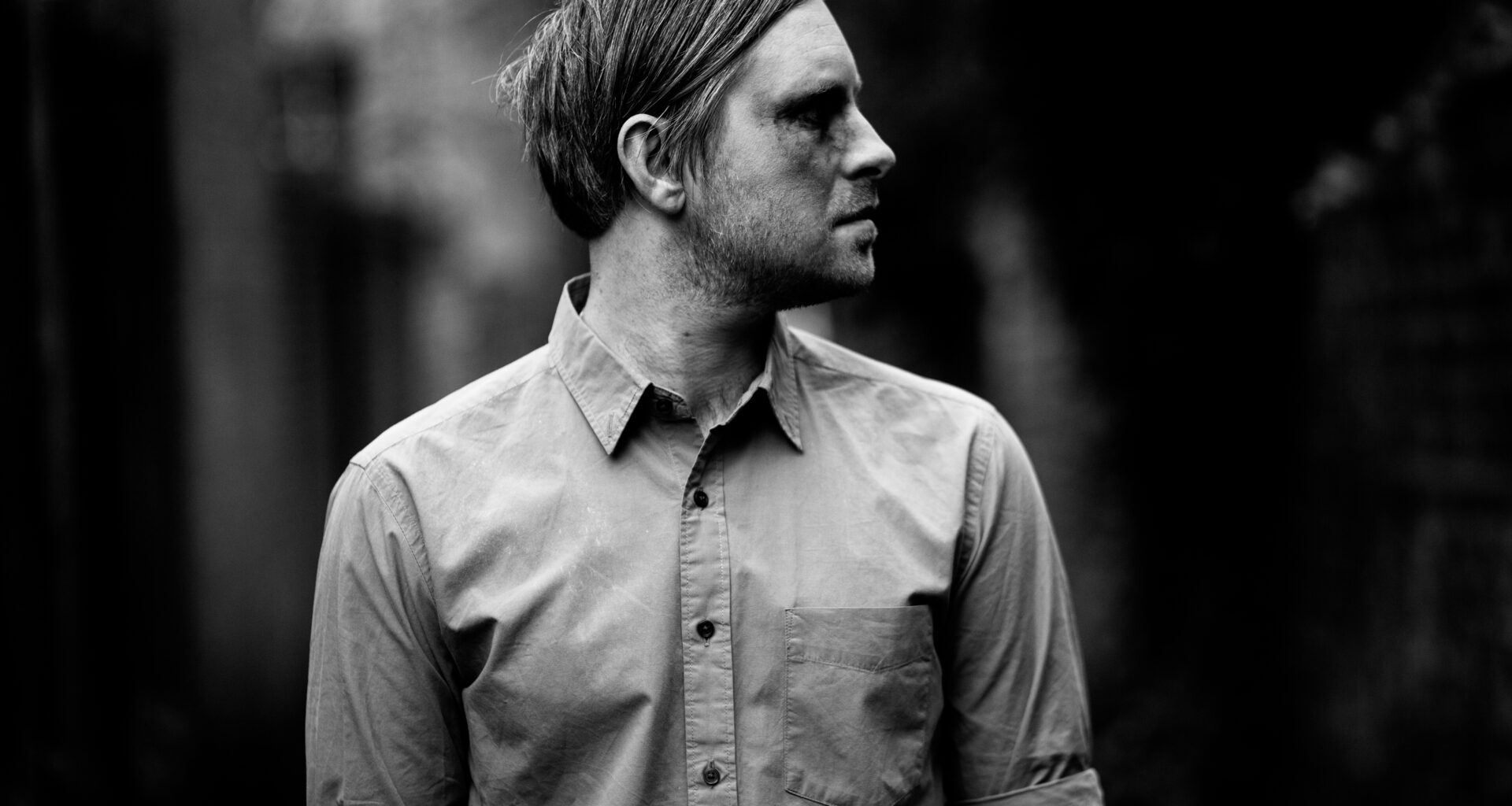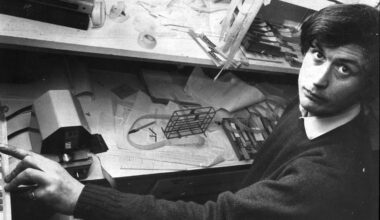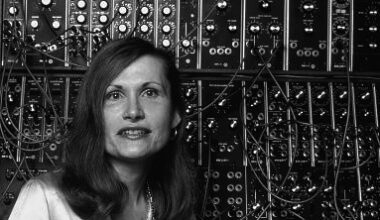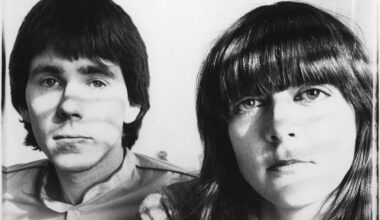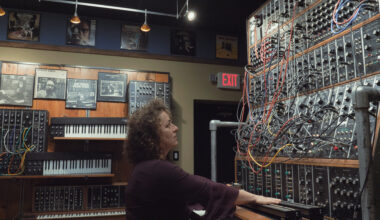Fuck Button Benjamin John Power has been cooking up a potent brew as Blanck Mass. With his new album, ‘World Eater’, the formula is spot on. What’s he throwing in that musical pot? Read on…
“I really like the element of surprise. I like to be kept on my toes,” says Benjamin John Power, the brains behind Blanck Mass. “If you surprise yourself you’re going to be presented with something you couldn’t imagine beforehand. Being surprised is important, it keeps me going.”
As one half of Fuck Buttons, Power helped create a potent, abstract form of music difficult to categorise. It was accessible enough to be used by Danny Boyle in the London Olympics 2012 opening ceremony (the tracks ‘Surf Solar’ and a remix of ‘Olympians’), yet odd enough to attract Andrew Weatherall as a producer (the second album, ‘Tarot Sport’).
Power’s Blanck Mass solo project has been the Edinburgh-based artist’s focus over the last few years. It’s a more personal expression that has found a home on Oneohtrix Point Never’s Software imprint and Mogwai’s Rock Action label, and garnered praise with the release of 2015’s ‘Dumb Flesh’ through Sacred Bones.
Uniting his endeavours is a desire to think and create differently, make something singular using recondite methods of production. A search in the dark for the unexpected often gets the best results. The new album, ‘World Eater’, is an intense, apocalyptic record that sounds like little else. It’s partly down to Power’s experimentation, mixing modular synths with found sounds, applying layer upon layer of effects to utterly transform the non-musical into something melodic.
“I use a lot of electronic gear, but I do like using things against the way they’re supposed to be used,” he explains. “You start to find your own signature. The signal you generate is often so manipulated and warped when it comes out the other end, that it’s almost obsolete to discuss what it was in the first place, because the schematic and the chain of the sound is way more important than the initial thought.”
Though hints at his influences can be detected on the record (in the Aphexian, xenomorphic melody, chopped up vocals and IDM crunch of the leviathan track ‘Please’, or the processed synthpop ‘Drive’ soundtrack touches of ‘Hive Mind’), there are few reference points. Instead, obscured, blurred vocals mix with urgent, clipped rhythms, pellucid electronic melodies, and crackling sound design create a world of extreme contrasts: aggression paired with beauty, despair versus hope. Rather than immerse himself in current musical trends, Power says that when he’s recording, he prefers to shut himself off to avoid subconscious neural interference.
“I listen to a lot of music, but when I’m writing I try not to listen to too much outside stuff,” he admits. “We’re all sponges to a certain degree, and even if you feel like you’re not trying to emulate a sound, everything going on around you, whether it’s music or film, literature, it’s still going to have some kind of impact on your output.”
Power likes to get hands-on when he’s creating. He shuns computer programs in favour of modular synths, and travels into the countryside to collect field recordings to help colour his detailed songs. It’s all part of a desire to retain something living in his work, as the best means to channel his emotions.
“I don’t really like using soft synths,” he explains. “I want these things to act as an extension of me, like another limb. I don’t like the separation of something just presented on a screen. It’s not tangible. There are some particular things I do use inside in the computer, like [modular control program] Expert Sleepers’ Silent Way, so I can speak CV [control voltage] to modular, which is very tactile, a nice thing. Other than that I try not to use too much stuff in the box, I like to get physical.”
Sometimes a ghost enters the machine, and paired with Power’s original intention, the modular equipment takes the music in a novel direction.
“The modular is feisty, sometimes they have a life of their own, and you’re handing over a bit of control to this machine,” he sighs. “That’s why I like to do things out of the box as it’s almost like a symbiotic relationship. As opposed to that very utilitarian, this is how it’s gonna be type thing. It’s nice to treat these machines as people, without any Skynet references!”
Power puts his vocals upfront on ‘World Eater’, something he’s avoided in the past, though the words are obfuscated and cut up to become tones and textures. It’s another means of pouring his soul into Blanck Mass, while allowing his audience to make their own interpretations of the music.
“I haven’t historically tended to use vocals too much,” he says. “I have on this record, but it’s so manipulated you don’t feel dictated to as to what you should be feeling when you listen to a track. You can form your own bond with this music.”
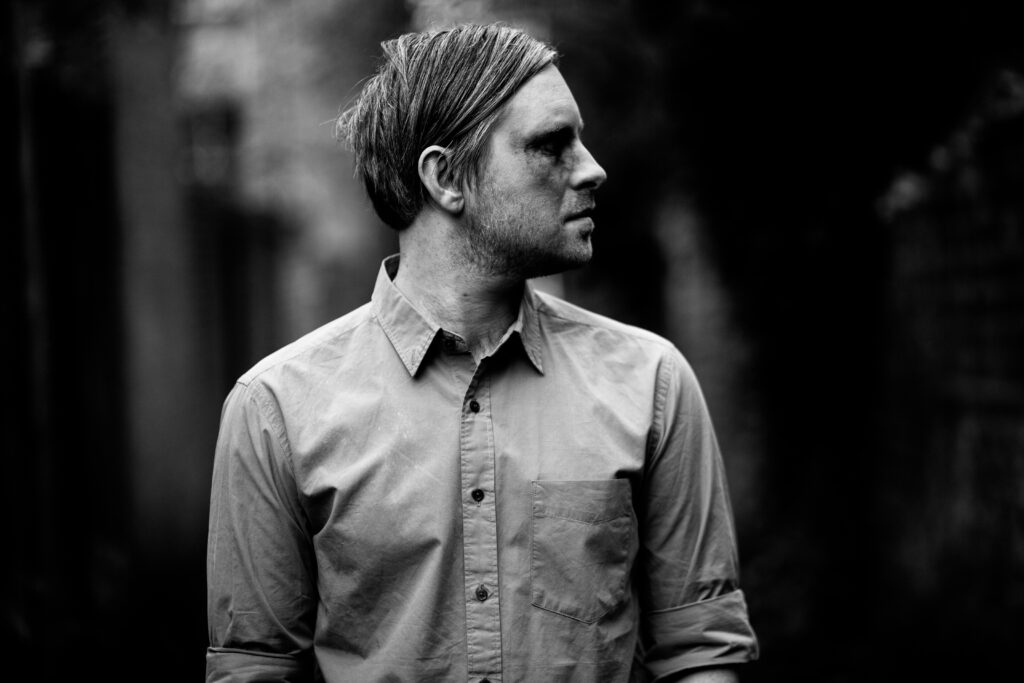
Power views music as a vital force, a means of transmitting emotions, whether simmering in the subconscious or boiling at the surface. Though he says he doesn’t plan songs before he begins the writing process, this time he had a central theme. ‘World Eater’ is about the destructive force of humanity and its capacity to annihilate itself. After the huge political power shifts of 2016, Power felt angry, and these emotions seeped deeply into the recording of the album.
“My subconscious does play a very strong part in the creative process,” he agrees. “Obviously there are a lot of feelings of anger in this new record. A lot of stuff was happening when I was writing this album, so you get that side of things,” he says.
The ‘World Eater’ is the human that doesn’t keep their most primitive, nastiest instincts in check, which, Power reckons, despite warnings, is happening again on a mass scale.
“It’s in reference to the inner beast, which is still apparent within human beings, which will act in a very primal sense. More often than not it will conduct bad in the world, and it’s more about trying to control as opposed to surrender to it.”
This beast rears its head throughout ‘World Eater’. ‘Rhesus Negative’ is the most extreme track Power has made – an electro-gothic soundtrack to the end of days, complete with massed choral voices, Nine Inch Nails atmospherics and Power’s own half whispered, half screamed voice. “That’s a particularly aggressive track, the most dramatic track as far as palette goes,” he agrees.
‘The Rat’, a glam stomp with histrionic electronic riffs, is laden with doom, while the synth-wave restraint of the bittersweet ‘Silent Treatment’ suddenly comes untethered and speeds into destruction. This darkness is a reflection of what Power sees in the world now. Without needing lyrics or discernible words, it shows us where we are, or where we could be if we’re not careful.
“It’s not just holding up a mirror to the world, but also personally as well,” he elaborates. “It goes back to understanding what we have inside us as animals.”
‘World Eater’ isn’t only shrouded in shadow. There are moments of great beauty and, most of all, hope too. A triptych, ‘Minnesota/Eas Fors/Naked’, is the record’s jewel.
What starts as a crepitating, ominous piece of sound design, like standing in a hall of fizzing, wrecked electrical equipment after a cataclysm, becomes a reflective ambient piece before a submerged loop of lush synthpop materialises in the light. It’s magical, and as a metaphor it suggests there might be a way out of the mess we’re in.
“I think if I’m saying anything with this record I want people to understand the beast and act upon that,” he says. “If you can understand what’s going on inside you should be able to control it, or implement it for good.”
A subject of concern for Power is whether art, in this case music, can sustain itself under authoritarian governments. The art itself represents a threat to these governments as a form of protest, a strong galvanic force that can very easily unite rather than divide.
“I just hope it doesn’t reach a point where it becomes censored,” says Power. “Art is art whether it’s reactionary or not, it’s something that brings people together. Or forces people to act. I hope this doesn’t become diluted through people fearing they’re not able to create art, for whatever reason. People should never stop doing what they believe in because someone says it’s not right.”
Get the print magazine bundled with limited edition, exclusive vinyl releases

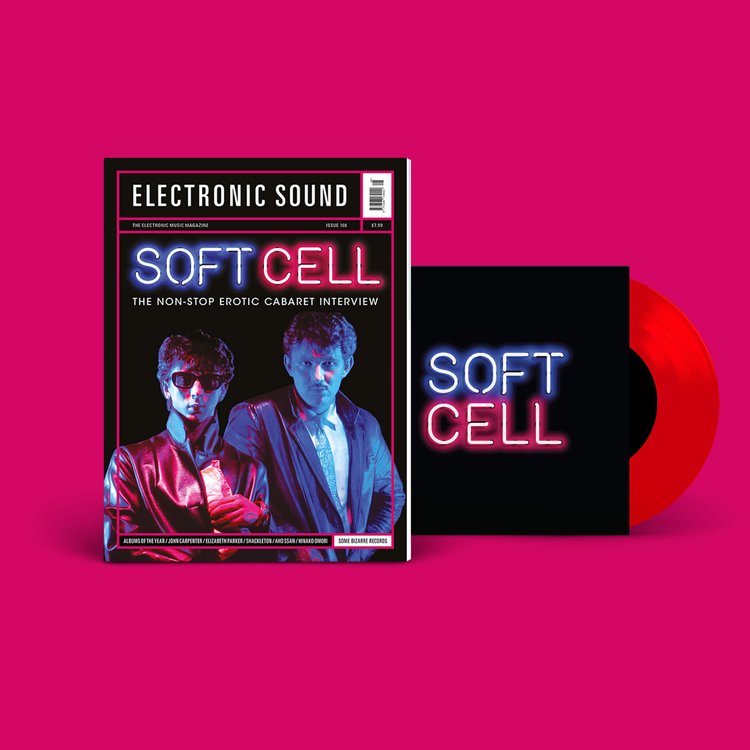
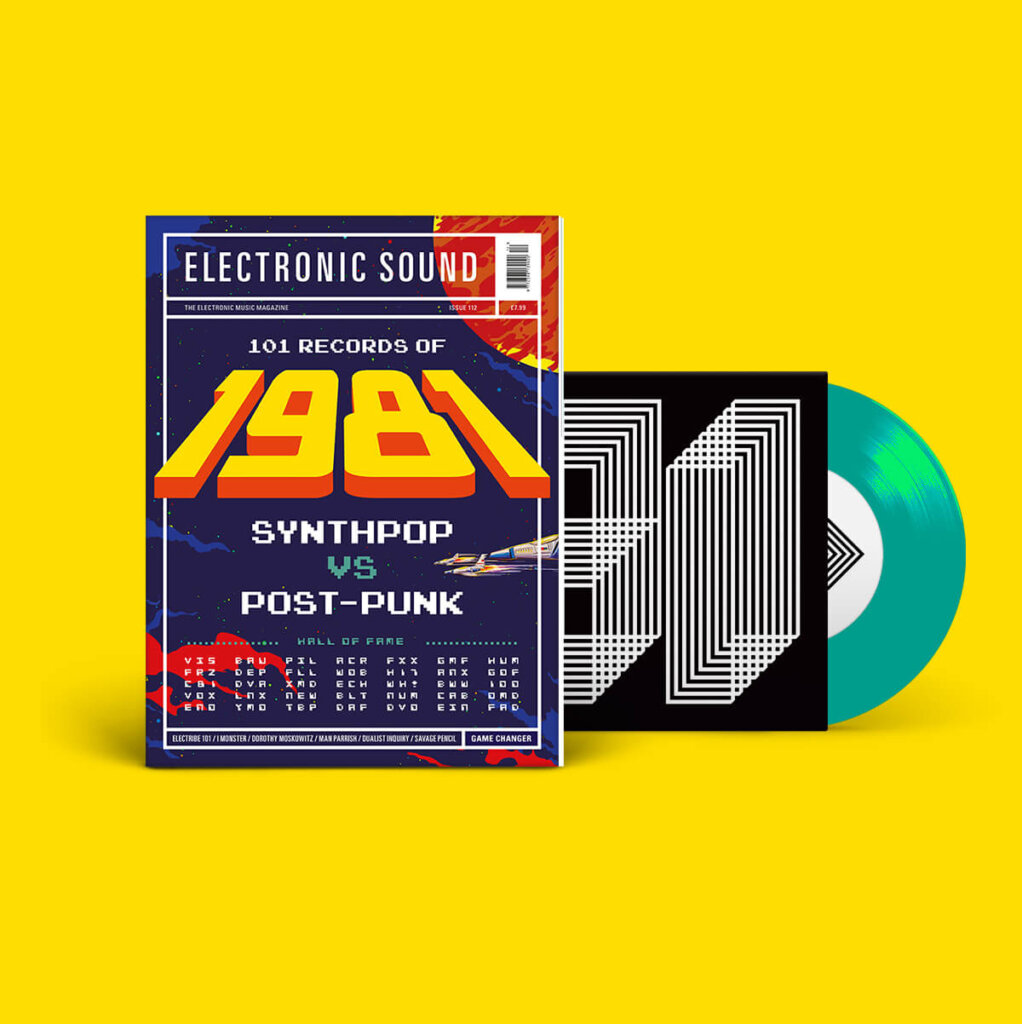
After an extended hiatus, it seems Fuck Buttons are set to make a return in the near future. Power says that he and his studio partner Andrew Hung are writing new material. As they live in different parts of the UK now, don’t expect it too soon.
“Fuck Buttons is still very much operational. We want this album to be a belter so we’re not going to rush it, we’re going to settle into it nicely, in our stride.”
Since 2013 and the release of the third Fuck Buttons album ‘Slow Focus’, Power has worked alone without the contributions of Hung. It’s something he says comes with its positives, but also drawbacks. Though he can work out exactly what he wants to make without compromise, without a spar, it can be difficult to know if you’re on the right track.
“There’s a very obvious difference in that there’s not another person to bounce ideas off, which is sometimes great, and sometimes difficult,” he confesses. “You can become very wrapped up in your own world, and it can be difficult to know if it’s shit or not! But as long as it’s honest and you’re not trying to emulate another sound, then there is no right or wrong. I enjoy collaborating because it obviously opens up another side of your own practice that you never realised was there once you have somebody else in the mix. Obviously that has its drawbacks as well, because you’re not in control. Sometimes you want to hand over a bit of control.”
With the album safely in the wild, Power is preparing a new Blanck Mass live show and has plans to get into soundtrack composition (something he’s dabbled with in his involvement on the score for Ben Wheatley’s ‘A Field In England’). To him, music is a great force, a power in fact. And it offers hope.
“I think that’s what it’s there for,” he says. “It comes from another place.”
‘World Eater’ is out on Sacred Bones
